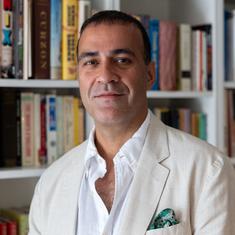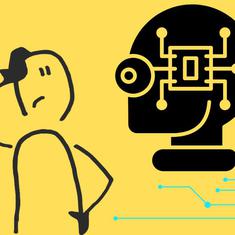This is the story of two of my girls who I got to spend very little time with. They were with me for a total of three days each. And yet, both of them had a profound influence on my life. Their pain served as the catalyst for our movement against modern slavery. We rescued 15-year-old Sabo in March 1981, and 14-year-old Gulabo in August 1983. For the first few years, Sabo would visit me, but then she moved to her in-laws’ home after her marriage. We were never in regular touch after that. As for Gulabo, she cannot visit me any more. She took her last breath with her head on my lap. Both of them had worked as labourers at brick kilns.
Let me first talk about my last meeting with Sabo. It was some day in May 1985. I was sitting in my office in Jantar Mantar, New Delhi, working in the afternoon as usual. All of a sudden, accompanied by her groom, Sabo rushed into my room looking resplendent in a sparkling new salwar-kameez and adorned with jewellery. “Bhaiya ji! Can you guess who this is?” she exclaimed as she gave me a big hug. I playfully slapped her cheek, and said with a mischievous smile, “No. Is this the one you ran away with?” She paused for a second and, scrunching her nose and lips, retorted, “What do you mean? I already introduced him to you and you liked him too. Are you pulling my leg?” I rose from my chair, laughing heartily, and embraced Sabo and her groom warmly.
Sumedha ji and I had, unfortunately, been unable to attend her wedding. But we were sure that she would visit us soon. “We have to leave for Ajmer Sharif immediately,” she said. “Your blessings are always with me, but this time I have come to get him your blessings. I decided we’ll go to pray at Khwaja Sahib’s dargah only after that.”
“Do you think I’ll let Mr Groom go just like that? Come and sit!” I said. I was overwhelmed by her love and respect for me. There was a shop in front of our office that served South Indian food. I quickly sent someone to get something for them. We used to have a credit account at that shop, so there was no payment to worry about just now. I was more concerned about something else. My younger sister and brother-in-law had come to visit me for the first time after marriage, and I would have to send them off without a gift. I somehow collected a little money from my colleagues and made arrangements for it. This had happened for the second time.
A few months after Sabo and her family had been freed, it was Raksha Bandhan. Sumedha ji had taken our son to her maternal home in Karol Bagh. I was on my way to the office when I suddenly began missing my elder sister, who lives in my hometown, Vidisha. To my amazement, when I arrived at the office, I discovered that my younger sister was already there, waiting. I hadn’t expected to see Sabo today; she had even brought along her father, Wasal Khan. Except for a handful of people, Raksha Bandhan is not widely celebrated among Muslim families. Sabo tied the rakhi on my wrist with immense affection. And I had no gift to give her, even money. Fortunately, Sumedha ji came to the office in the evening and gave Sabo a gift. This little tradition of ours was observed for many years that followed. In the beginning, she used to come to tie the rakhi herself, then she started sending her rakhis by post. It had been nearly a year since they had been freed from the kiln when I received a letter from Sabo.
In the letter, she bemoaned her father’s plans to wed her to an older man who was already married. We sent a colleague to bring Wasal Khan to Delhi. I explained his mistake to him while also admonishing him severely for it. He acknowledged his fault and called off the wedding. Approximately eighteen months later, Wasal returned to us with some of his family members. Among them was a young man of about twenty. Wasal told us that Sabo had agreed to an arranged marriage with him, and he wanted my opinion on it. He seemed like a good lad and I supported their decision.
Sabo was soon married to that boy. As I said my goodbyes to Sabo and her husband that May afternoon in 1985, I jokingly said, “Ask for a couple of blessings for me too when you offer a chadar at the dargah sharif.” She smiled and replied, “Yes, I’ll definitely do that.”
“What will you ask for?” I asked her.
“I will ask that you become a lawyer,” she said. I laughed and said, “But I don’t want to become a lawyer.” To this, she said, without missing a beat, “Then I will pray that Sona Bhaiya [my son, Bhuwan] grows up to be a lawyer soon.” Lawyers had, in fact, played a major role in securing Sabo’s freedom. She would frequently hear her father mention the term “Vakil Sahib”, and so she believed that lawyers were the most powerful and helpful people there were. “Would you pray for me to become the uncle of a lovely niece?” I asked Sabo. “Of course,” she said softly, blushing a little, “I will pray for a lovely daughter for you too.” I kept thinking about Sabo for a long time after she left.
My mind went back to the first time I met Wasal Khan. It was the year 1981. Along with some of my friends, I used to publish a magazine titled Sangharsh Jaari Rahega (“The Struggle ‘Will Live On”). The fortnightly magazine was dedicated to highlighting the issues of the most disadvantaged and oppressed groups in our country. One day, I was sitting in my office when a distressed man suddenly knocked on my door. He was Sabo’s father, Wasal Khan. Someone had told him that we could publish his story in our magazine, which might be of some help to him. What Wasal Khan proceeded to tell me left me shocked and enraged.
17 years ago, a dealer had lured him and his newly married wife from his village in Aligarh to work in a brick kiln. He had taken many people there in the same manner. That kiln was near the city of Sirhind in Punjab. All of them had worked there as slaves ever since. They were not permitted to leave the kiln compound. Provided with the basic necessities, they were not even paid any wages. Sabo was born at the kiln 14 years ago. One day, Wasal learnt that some pimps from a Delhi brothel had come to purchase her. They were inside one of the rooms making a deal by groping Sabo’s body to decide on a price for her. The deal could not be sealed that day because the kiln owner demanded more than the buyers were willing to pay. Wasal fled to Chandigarh in a truck in the dead of night, hoping to find some assistance. He stumbled upon a man who was a subscriber of our magazine, which eventually led him to me. He fell at my feet as he wept recounting his tale.
I was 27 years old at the time. A thought crossed my mind: What if Sabo was my daughter or sister? Would I have squandered a whole day to merely write her story? When I informed Wasal that I was going to Sirhind to rescue Sabo and his family instead of publishing his story, he panicked. “The owners are very dangerous and powerful. They’ll kill you if you go there!” he exclaimed. I somehow convinced him and took him home. We had rented a small storeroom in someone’s house, where Sumedha ji and I lived with our one-and-a-half-year-old son, Bhuwan. I told Wasal I needed to make some arrangements and reassured him that we would go to free Sabo in two or three days.

Excerpted with permission from Why Didn’t You Come Sooner? Compassion in Action: Stories of Children Rescued From Slavery, Kailash Satyarthi, Speaking Tiger Books.










